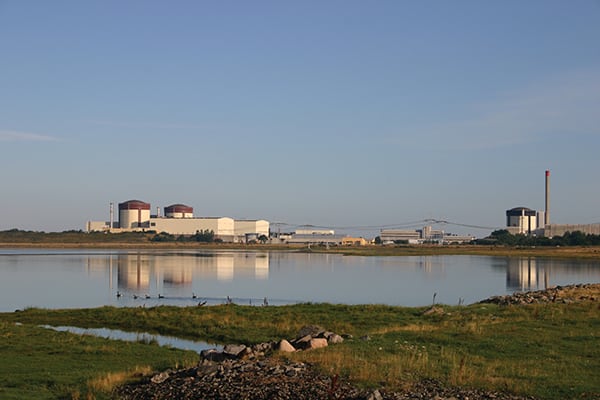Sweden to Consider Nuclear-Free Future
Sweden is reconsidering phasing out nuclear power in favor of a 100% renewables power mix.
The country’s 10 operating nuclear power plants produce about 40% of the Scandinavian country’s power. The remainder mostly comes from hydropower, depending on the season. The fourth-largest country in the European Union, Sweden’s electricity consumption has been gradually rising.
Sweden is a parliamentary democracy with a constitutional monarchy. In 1980, in the aftermath of the Three Mile Island accident, parliament moved to embargo building new nuclear power plants and called for closure of the country’s then-12 nuclear plants by 2010 if new power sources were available to replace them. In February 2009, however, a conservative-led alliance of four parties that were voted in during the 2006 elections moved to abolish the ban on new nuclear construction, which parliament narrowly endorsed in June 2010. Parliament, however, limited new construction to replace aging plants only at existing sites.
But in Sweden’s September 2014 election, voters turned against the center-right government and ushered in an alliance of left-leaning Social Democrats, the Greens, and the Left Party. While the Social Democrats say nuclear plants will be needed for the “foreseeable future,” the Greens have called for the closure of Sweden’s four oldest reactors—OKG’s Oskarshamn Units 1 and 2, and Vattenfall’s Ringhals Units 1 and 2 (Figure 5)—within the next four years.
This October, the alliance agreed to set up an energy commission that will open a broad discussion and undertake an analysis of nuclear’s future role in the country, as well as considering a significantly larger role for renewable power and energy efficiency.
“An energy commission will be convened for cross-party discussions on energy policies with the aim of framing a long-term, sustainable energy agreement,” the Green Party said in a statement. Meanwhile, the Green Party and the Social Democrats said in identical statements that nuclear power should bear a “greater share of its economic cost,” and that “safety requirements should be strengthened and the nuclear waste fee increased.”
The agreement also calls on wholly state–owned Vattenfall to increase its share of renewable generation and shelve plans to build two new reactors after 2025.
—Sonal Patel
